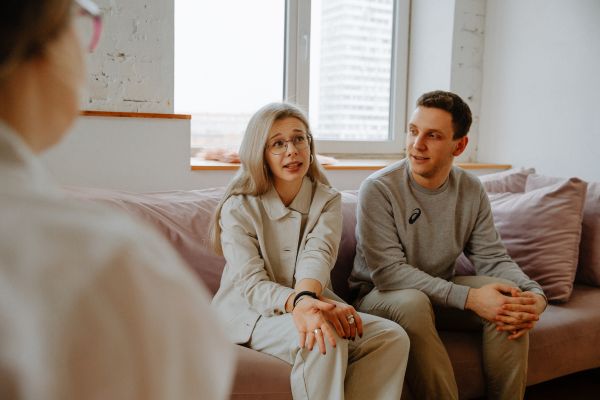Couples therapy, a valuable resource designed to enhance communication and understanding, has gained prominence in addressing these challenges. As couples contemplate embarking on this therapeutic path, a common question arises: “How much does couples therapy cost?” This article delves into the nuanced landscape of couples therapy costs, exploring the various factors that influence pricing and the potential benefits that can be reaped from this investment.
How Much Is Couples Therapy?
The cost of couples therapy can vary widely depending on various factors, including the location, the qualifications and experience of the therapist, the type of therapy offered, the duration of the sessions, and whether it’s in-person or conducted online. On average, couples therapy sessions can range from $75 to $200 or more per session.
Here are some factors that can influence the cost of couples therapy:
1. Location: Therapy costs tend to be higher in urban areas and regions with a higher cost of living.
2. Therapist’s Qualifications and Experience: Therapists with more experience, advanced degrees, and specialized training may charge higher fees.
3. Type of Therapy: Different therapists use various therapeutic approaches, such as cognitive-behavioral therapy, emotionally focused therapy, or systemic therapy, which can affect the cost.
4. Session Duration: Standard therapy sessions are typically 45 to 60 minutes long, but longer sessions might be available at a higher cost.
5. Frequency of Sessions: Some couples attend therapy weekly, while others may go less frequently. The frequency of sessions can impact the overall cost.
6. Online vs. In-person: Online therapy options might be more affordable than in-person sessions, but this can vary based on the therapist’s pricing structure.
7. Insurance Coverage: Some health insurance plans cover a portion of therapy costs, so it’s worth checking with your insurance provider to see if you have any coverage.
8. Sliding Scale Fees: Some therapists offer sliding scale fees based on your income level, making therapy more accessible for individuals and couples with financial constraints.
Benefits of Couples Therapy
1. Improved Communication
Effective communication is the cornerstone of a healthy relationship. Couples therapy equips partners with the skills to express themselves openly and listen actively, fostering understanding and empathy.
2. Conflict Resolution
Conflicts are inevitable in any relationship. However, couples therapy provides a safe space for couples to identify and address underlying issues, leading to healthier conflict resolution strategies.
3. Emotional Intimacy
Couples often struggle with maintaining emotional closeness. Through therapy, couples can explore their emotional needs and develop techniques to strengthen their bond.
When to Consider Couples Therapy
1. Communication Issues
If communication has become strained or confrontational, couples therapy can offer guidance on effective ways to communicate and express emotions.
2. Frequent Arguments
Excessive arguments may indicate deeper issues. Couples therapy assists in identifying the root causes of arguments and working towards resolution.
3. Infidelity
Recovering from infidelity can be challenging. Therapists provide a neutral ground to facilitate discussions, rebuilding trust and understanding.
4. Lack of Emotional Connection
If partners feel disconnected or emotionally distant, couples therapy can help reignite the emotional spark and foster a deeper connection.
Types of Couples Therapy
1. Emotionally Focused Therapy (EFT)
EFT focuses on identifying and transforming negative emotional patterns within a relationship, leading to a more secure and attached bond.
2. Cognitive-Behavioral Therapy (CBT)
CBT emphasizes changing negative thought patterns and behaviors. In couples therapy, it helps partners develop healthier interactions.
3. Imago Relationship Therapy
This approach explores how childhood experiences influence adult relationships. It aims to create understanding and empathy between partners.
Finding the Right Couples Therapist
1. Credentials and Experience
Look for licensed therapists with experience in couples counseling, ideally with specialized training in relationship dynamics.
2. Compatibility with Therapist
Comfort and trust are vital. Finding a therapist whose personality aligns with both partners can enhance the therapy’s effectiveness.
3. Approach and Techniques
Different therapists employ varied approaches. Research therapists’ methodologies to ensure they resonate with your needs.
What to Expect in Couples Therapy Sessions
1. Initial Assessment
Sessions often begin with an assessment of the relationship’s strengths, weaknesses, and goals.
2. Goal Setting
Therapists work with couples to set specific goals, providing a roadmap for the therapy journey.
3. Communication Exercises
Couples engage in exercises that target communication skills and emotional expression.
Conclusion
Couples therapy can be a transformative investment in a relationship’s well-being. The costs are influenced by factors like location, therapist’s experience, and type of therapy. However, the benefits of improved communication, conflict resolution, and emotional intimacy are invaluable.
FAQs
1. How long does couples therapy usually last? The duration varies but can range from a few weeks to several months, depending on the issues being addressed.
2. Can couples therapy save a relationship on the brink of separation? Yes, couples therapy has helped many couples mend their relationships even when facing significant challenges.
3. Is it necessary for both partners to attend all sessions? Ideally, both partners should attend all sessions to ensure equal participation and progress.
4. Is couples therapy only for married couples? No, couples therapy is for any romantic partners seeking to improve their relationship, regardless of marital status.
5. How can we find a qualified couples therapist? Research online directories, ask for referrals, and consider therapists’ credentials and reviews to find the right fit.








